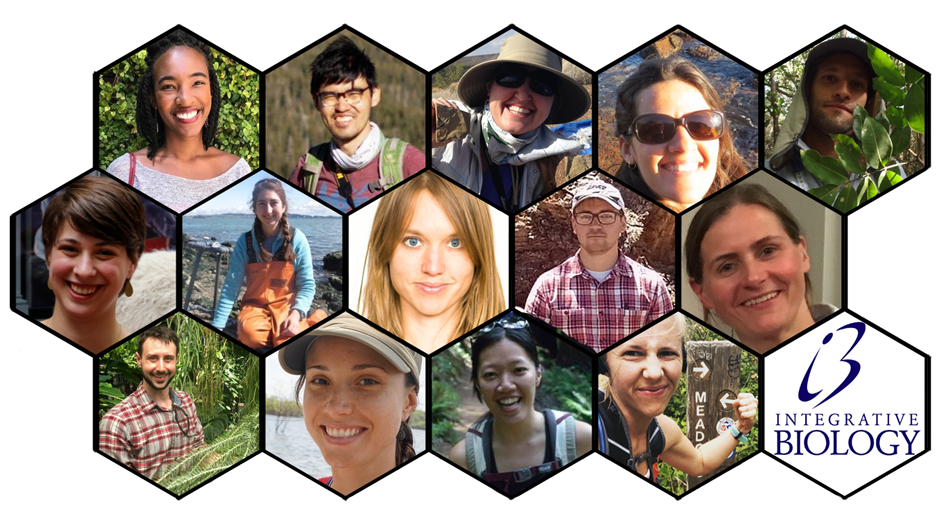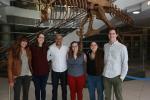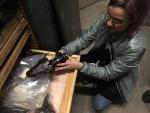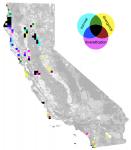Graduate
Recognizing IB's Outstanding Graduate Student Instructors
Submitted by Krystin Ventura on Tue, 04/16/2019 - 13:50Congratulations to the 10 IB graduate students who have been named Outstanding Graduate Student Instructors! The OGSI Award recognizes GSIs from each department on campus for excellent work in the teaching of undergraduates.
Are There Dinosaur Bones in UC Berkeley's Campanile?
Submitted by rhkayen on Fri, 03/08/2019 - 10:11“It’s always dinosaur bones,” says Pat Holroyd, feigning exasperation. She handles Vertebrate Collections for the UC Museum of Paleontology. Leslea Hlusko, a professor in the department of integrative biology, interjects: “But it’s actually better ... dire wolves!”
Researchers Work to Reverse Cognitive Decline as People Age
Submitted by rhkayen on Tue, 03/05/2019 - 10:02Daniela Kaufer, professor of integrative biology at the University of California, Berkeley, shared progress toward addressing another cause of cognitive decline: dysfunction of the blood-brain barrier. The blood-brain barrier ordinarily protects the brain, but Kaufer’s work shows that when the barrier falters, itself a sign of aging, proteins can enter brain cells called astrocytes, which causes inflammation in the brain and leads to cognitive impairments.
UC Berkeley study reveals hummingbirds prioritize fighting over feeding
Submitted by rhkayen on Wed, 01/23/2019 - 08:08According to lead scientist on the project and Miller Postdoctoral Fellow at UC Berkeley Alejandro Rico-Guevara, physical traits observed in male hummingbirds in the tropics of Central and South America could not be explained through adaptations to feeding strategies.
IB Students in the Lab and Field
Submitted by mjalbe on Thu, 01/10/2019 - 13:04We thought you might like to see a few photos of our work in the field, our museums, and our labs...
IB graduate students Erik Sathe, Joyce Chery, Sara ElShafie and Aaron Pomerantz.
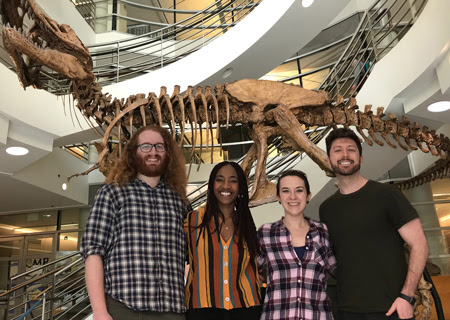
Undergraduate Julia Anderson displays the subject of her senior research project: the skull of a giant vulture-like bird from the La Brea Tar Pits, which she’s analyzing and describing.
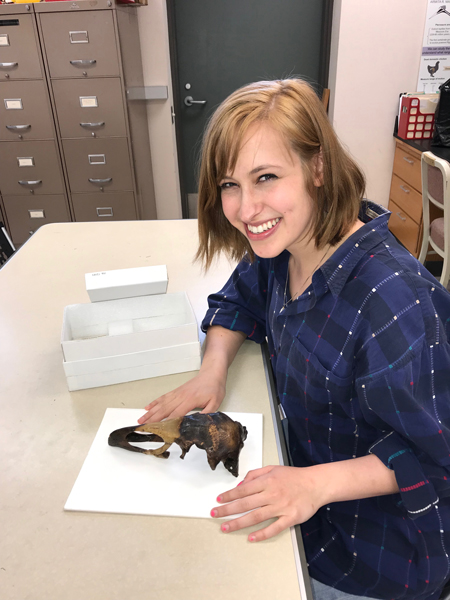
The Sounds That Haunted U.S. Diplomats in Cuba? Lovelorn Crickets, Scientists Say
Submitted by rhkayen on Tue, 01/08/2019 - 08:19Alexander Stubbs of the University of California, Berkeley, and Fernando Montealegre-Z of the University of Lincoln in England studied a recording of the sounds made by diplomats and published by The Associated Press.
Feisty hummingbirds prioritize fencing over feeding
Submitted by rhkayen on Wed, 01/02/2019 - 11:45Using high-speed video cameras, the researchers have for the first time captured hummingbird fencing and feeding strategies in slow motion to document the various ways the birds use their bills to fight and the trade-offs they accept when choosing fighting over feeding prowess.
Acrobatic geckos can even race on water’s surface
Submitted by rhkayen on Fri, 12/07/2018 - 08:29Geckos are renowned for their acrobatic feats on land and in the air, but a new discovery that they can also run on water puts them in the superhero category, says a University of California, Berkeley, biologist.
As climate and land-use change accelerate, so must efforts to preserve state’s plants
Submitted by rhkayen on Mon, 11/19/2018 - 11:29“We just have a decade or two given the rapid pace of climate and land-use change,” said Brent Mishler, a UC Berkeley professor of integrative biology and director of the University and Jepson Herbaria. “Our opportunities, even 10 years down the line, are way more limited compared to what they are now. What we are going to save, we are going to save quickly. We don’t have forever to leisurely conserve California.”
